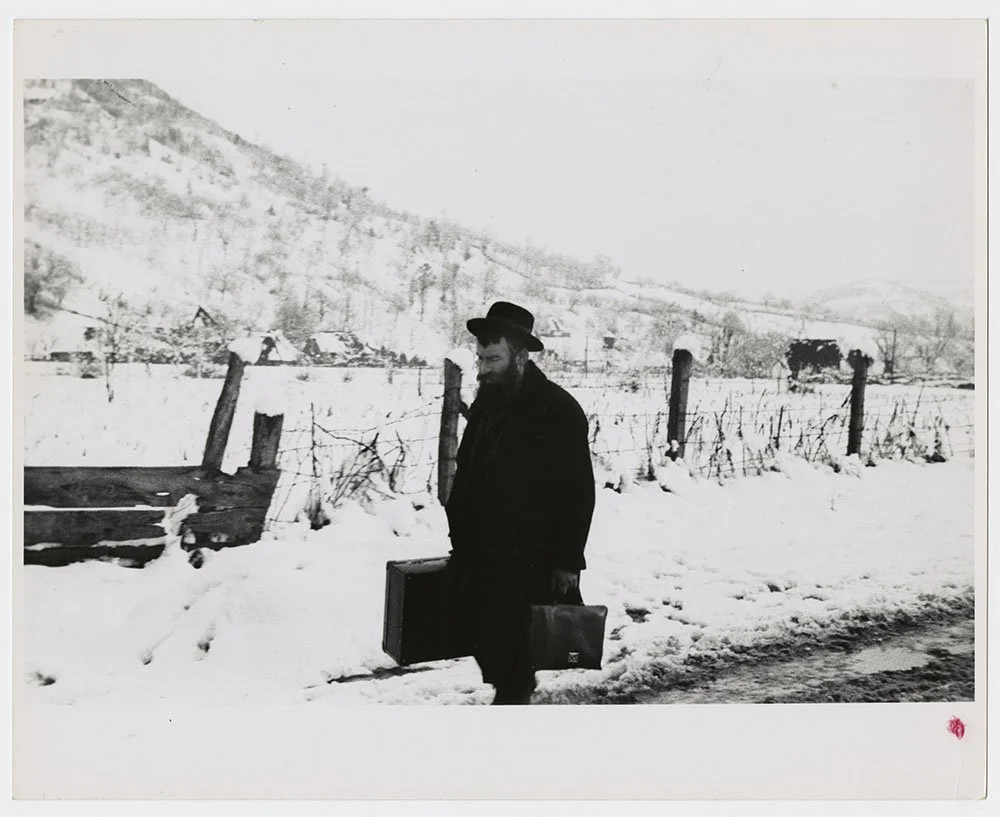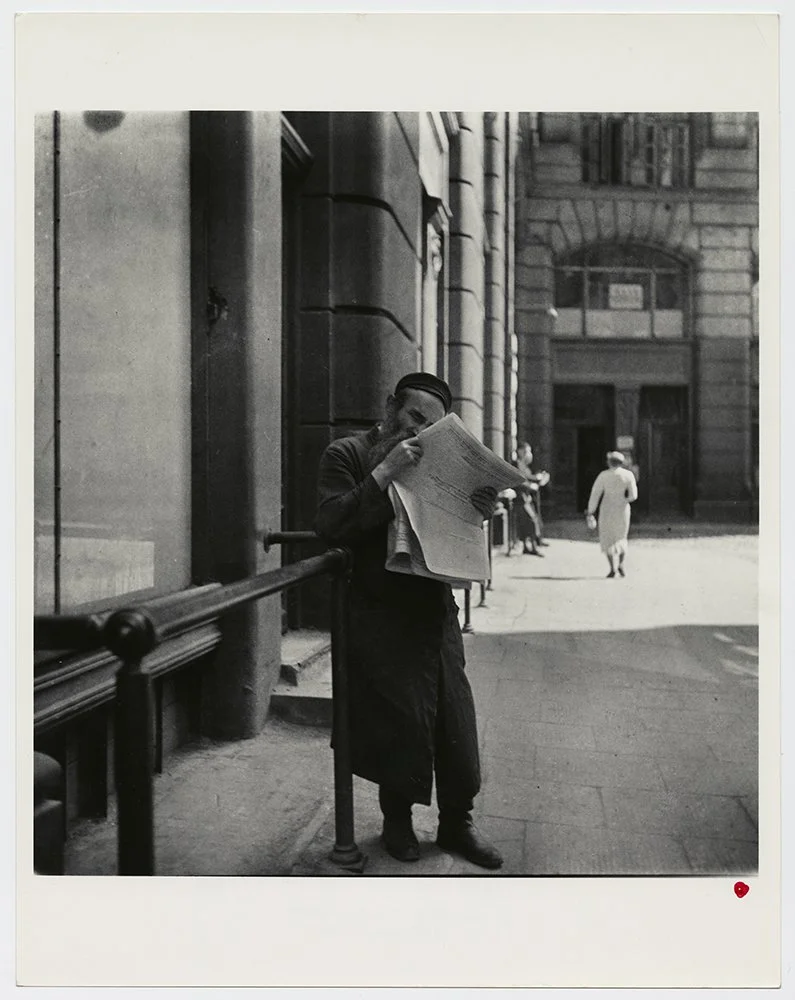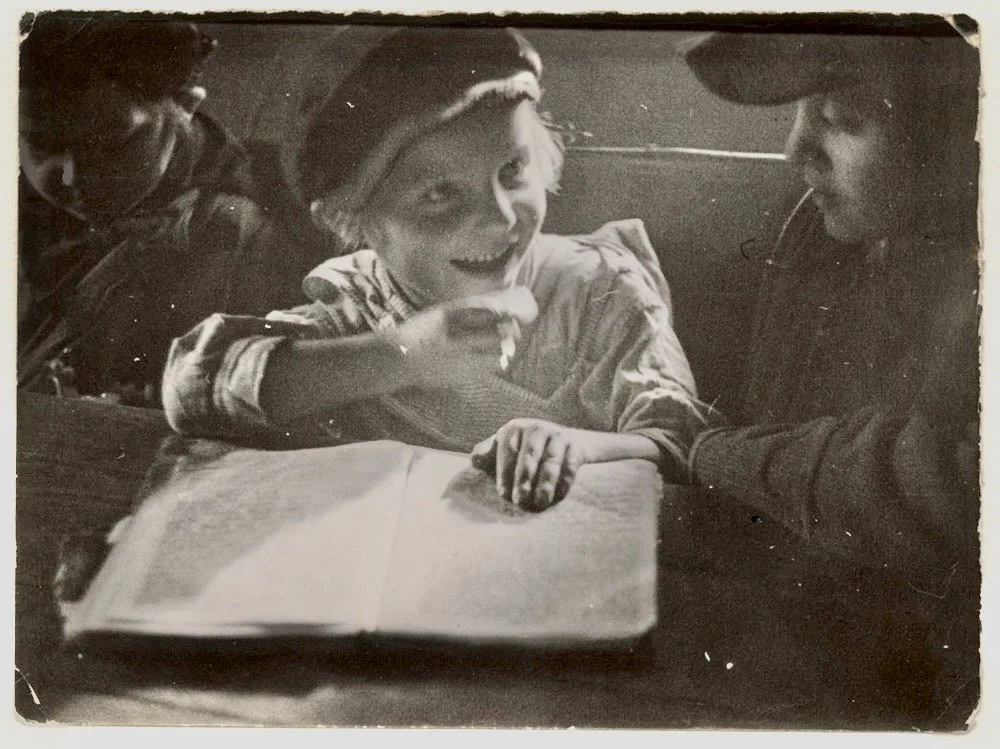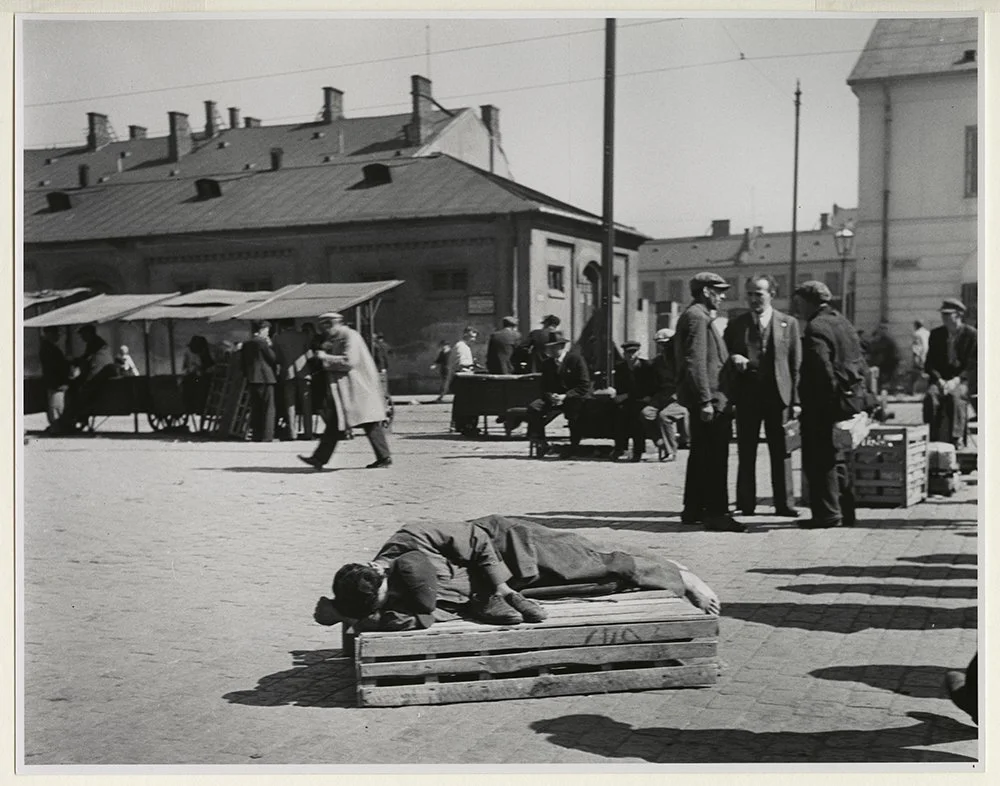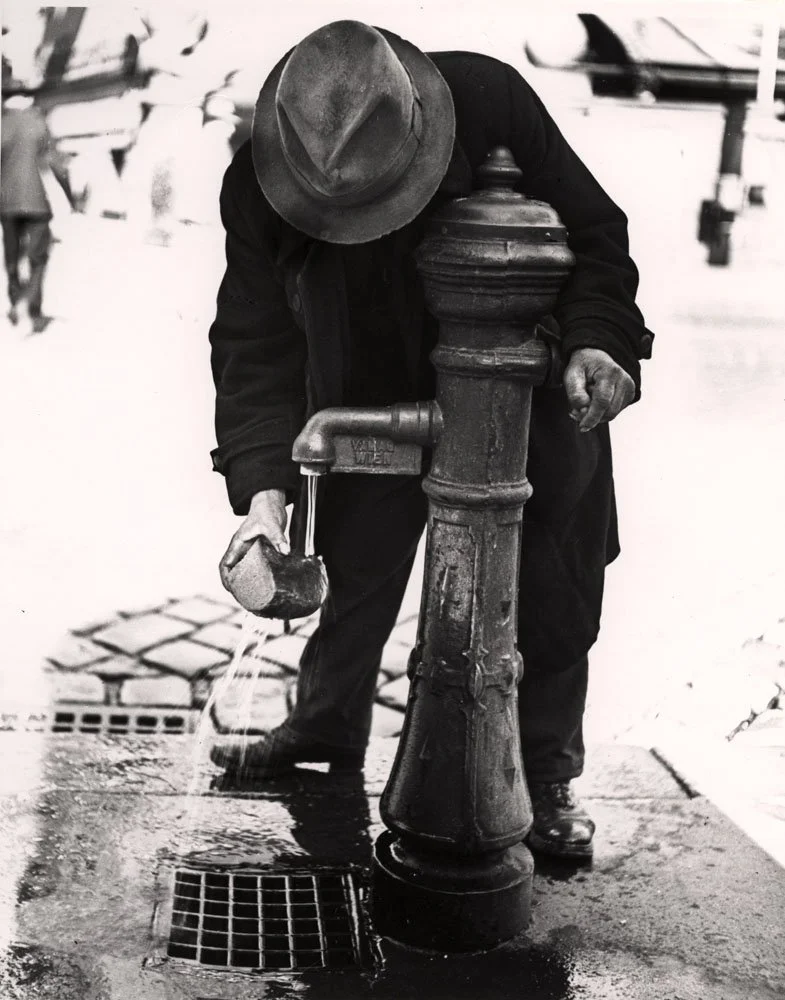Vishniac Photos
Seven poems in The Lamps of History are based on photographs by Roman Vishniac who, from 1935 to 1938, was commissioned by the American Jewish Joint Distribution Committee to photograph impoverished Jewish communities in Central and Eastern Europe. Here are the photographs with some of the accompanying poems.
Salesman on His Way to the Railway Station:
Gift of Mara Vishniac Kohn © The Magnes Collection of Jewish Art and Life, UC Berkeley
Carpathian Ruthenia
Removed, remote
from the last onlooker, far enough to forget.
I can’t look at the photos: pits, showers, trains
of spectacles and shoes. I, from a family saved
before Hitler and Stalin had shipped
their first test cargoes. Shaped
by business class, spas, lines
of credit, I confront other scrapheap mores
with a mild inclination to forgive—
but something in this shot has already snapped:
look how he eyes the muddy snow,
those sleeves dangling a sample case and grip
rucked from abuse, his hat
drooping to a slow-motion gait
of the weary or outcast, perturbing
something in us even before we notice
the barbed wire fencing through the mist—
or is it smoke?
It happens in a blur
and I try not to blink,
but my senses dissemble—smoke nettling
my nostrils as I walk
beside him, chattering as if I sold hope,
a fellow merchant who banks
on packaging—the rail cars just rolling stock;
the man on the platform a helpful usher
directing him left, me right…to an unobstructed seat.
Catching Up on the News:
Gift of Mara Vishniac Kohn © The Magnes Collection of Jewish Art and Life, UC Berkeley
Muranów District, Warsaw
His eyes hypnotized by a Yiddish rag, one of a dozen then hawked in Warsaw, some with photos, one featuring a cartoon of a German clown. He’s out of tune with what’s going on, what with that porter’s cap and coat flapping at his ankles. A woman in smart Sunday togs saunters by and he doesn’t cop a glance. His disregard forebodes—but who foresaw the rage answering a Judenfrage?
I used to wonder if they bothered to question whether a god watched their backs as they observed, to the letter, each section of the Nürnberger Gesetze. What to make of halide ghosts exhumed from fiche and film, their names heaped into vast compilations? The child in me wants it to be a hoax forged with contrived reason, clad with protective rhyme. I, too, prefer the morning paper without distraction.
How Many Verses Do You Know:
Gift of Mara Vishniac Kohn © The Magnes Collection of Jewish Art and Life, UC Berkeley
A Porter Asleep on Top of His Carrying Box:
Gift of Mara Vishniac Kohn © The Magnes Collection of Jewish Art and Life, UC Berkeley
Softening Stale Bread:
Gift of Mara Vishniac Kohn © The Magnes Collection of Jewish Art and Life, UC Berkeley
Vienna
What do the neighbors say as he dampens stale bread at the town spigot? Such a crooked back! Or, Look at him stoop, draining the communal pump! Do they call him Elder of Zion, imagining those trembling hands on levers of power, or his carriage fitting in on the Unter den Linden? A fine hat hides his face, vestige of his prior station, but his lot is cut and dry—a hardtack of otherness from tribal ovens.
Nazis break into my dreams. They attack me in a schoolyard, shouting, slapping my face—I’m left cowering as classmates cackle. Lately, I’ve fought back. In deepest REM, I corner a Middle Eastern man, call him foul names, eerily stirred by cries of Deir Yassin… Roused, I toss aside the covers, brew coffee, tackle a whole-grain slab with raised knife—and crumbling hope: a loaf too stale to save with any dousing.
Where High and Low Streets Meet:
Gift of Mara Vishniac Kohn © The Magnes Collection of Jewish Art and Life, UC Berkeley
Yeshiva Examination:
With permission of The Magnes Collection of Jewish Art and Life.
Mukachevo
Vortex in black, an ellipse of elders
delving into intractables from benches three-deep,
eyes clouded by riddle. At their pith,
a rabbi fingers a book between foci of two candlesticks.
He too appears lost, compressed by the sweep
of bookcases above—shelf
on shelf of volumes tilting
somewhat precariously, a wall clock in the corner
out of kilter.
I detect a waiting room smell: damp wool of coats,
brimmed hats, fur of the rabbi’s shtreimel.
The book open on the table
a dissected corpse, its frail
sinews the labyrinthine treatments of sages.
Still I look on, doubter and apostate,
while they inquire,
perhaps seeking a diagnosis for the hemorrhaging
of sacred texts, the glass shards, pyres…
Our tour group climbs the hill to Kiryat Arba
where I hope to reconnect, grounded
in the unfamiliar. Yet all appears normal:
whitewashed duplexes with geraniums, a fence, a wall.
Inside, teens fidget with newly bound compendia
as a modern Rav rails
at recreants prone to give away the honeyed ground.
Shall I tell him scripture’s now apocrypha?
Will he avow his kids are blood of Ishmael?
